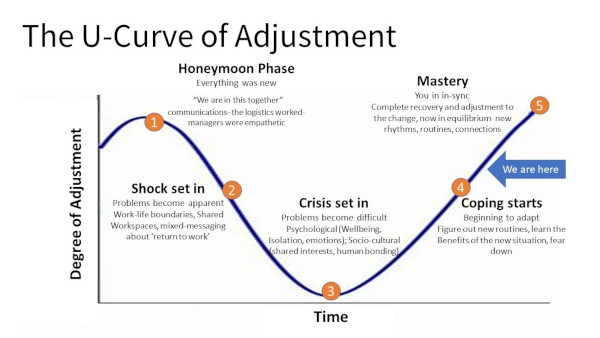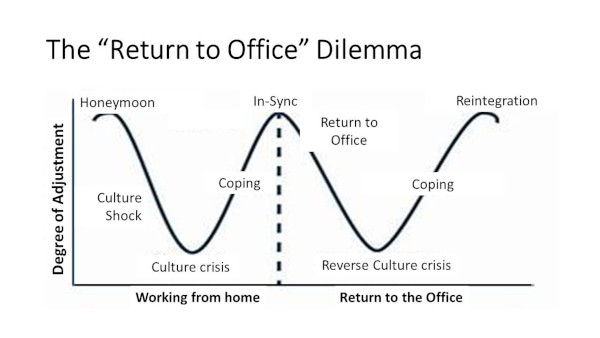[Image by Gerd Altmann from Pixabay]
Good morning,
Have you wondered how, despite time being a great equalizer—everyone has the same 24 hours—some people seem to have so much more time?
In Rebel Talent, Francesca Gino, Tandon Family Professor of Business Administration at Harvard Business School, shares a surprising insight.
She writes, “We tend to think that the more we have to do, the less time and mental space we will have for other tasks. This is a matter of basic logic, and it is hard to imagine life being any other way, right? But it turns out this is wrong. When we are fully engaged in our work and in our lives, we actually have the energy to accomplish more. Bottura [Massimo Bottura, a Michelin star chef] who often plays a game of soccer out on the street with the staff before dinner starts, has discovered this. This is another secret of the rebel: What seem like tangents, or doing extra—or helping someone when it seems that there is no time—become paths to a more vibrant life. Doing more gives us more.
“Psychologists are catching up with this rebel insight. Cassie Mogilner of the University of California in Los Angeles and her colleagues have shown that when we give our time to others, we actually feel less time-constrained. Of course, giving time to others gives us a ‘connected’ feeling and brings us meaningful experiences. But people who give time, Mogilner’s research shows, also feel more capable, confident, and useful. They feel they’ve accomplished something and, as a result, that they can accomplish more in the future. I’ve seen a similar effect in my own research. I recruited participants to work on a data-entry task, and I deliberately made some of them busier than others by giving them more work to complete in the same amount of time, telling them that they would be helping a researcher’s project by doing so. The participants who got more work done within the same allotted time, and thus were objectively busier, felt less time constrained, and were more willing to take on more.
“Perhaps this explains the almost magical quality I sensed when I was with Bottura and the other remarkable people I met during my research for this book. In their joy of doing—in their total engagement with life—their recipe for success turned out to be rebelling against time itself.”
In this edition
- Why back to office is not just a change of place
- Bill Gates on getting things done
- Who wants to be a fillionaire?
Have a great day.
Why back to office is not just a change of place
In a recent issue of his newsletter series Future of Work, Raghu Krishnamoorthy, former senior vice president of Human Resources at GE, talks about why people will find it hard to adjust to working from office. He writes, working from home involves five phases, as illustrated in the following diagram.

Employees now prefer a hybrid work arrangement because of the change in their identity, not just because of a change in their workplace. Home is the new anchor for work, with the office as the additional option, not the other way around. If organizations want employees to return to work from an office, they are not just changing the workplace place; they are asking employees to change their identity once again! While the pandemic induced work from the home arrangement was not seen as the organization's fault, the imposition of a mandatory return to the office space will be its fault. If imposed, it would mean that employees will go through another U-shaped curve. Eventually, they will cope with it, but it will not be easy. This shift is modeled in the figure below.

Bottom line, the shift to working from home and return to an office space is a far more complex issue than just a change in place. It is an entirely new work arrangement and comes with its own psychological meanings and complications. Decision-makers should note that whatever call they make would result in not just a location change but a change in identity.
Dig deeper
Bill Gates on getting things done
In a succinct but meaty interview with The Wall Street Journal, Bill Gates, who recently published a book on climate change, talks about some interesting issues. Here are two that caught our attention.

[By Kjetil Ree, CC BY-SA 3.0, via Wikimedia Commons]
One belief has changed the most over the course of his life: The idea that people have diverse sets of skills, and that some people who are extremely smart in some ways aren’t particularly smart about managing people or figuring out different problems, and the fact that it takes a mix of people to solve tough problems. That’s been eye-opening to me throughout my career.
One reason he is optimistic: I think being optimistic is somewhat of a genetic thing. I have, you know, both—my genetics are optimistic and my life experience has gone well enough… And then I have an analytical framework… that confirms that optimism.
Dig deeper
- The best decision Bill Gates ever made (if you don’t want to click, Gates’s answer is ‘getting married’)
Who wants to be a fillionaire?

(Via WhatsApp)
Tell us what you think and find noteworthy.
And if you missed previous editions of this newsletter, they’re all archived here.
Bookmark Founding Fuel’s special section on Thriving in Volatile Times. All our stories on how individuals and businesses are responding to the pandemic until now are posted there.
Warm regards,
Team Founding Fuel
(Note: Founding Fuel may earn commissions for purchases made through the Amazon affiliate links in this article.)


